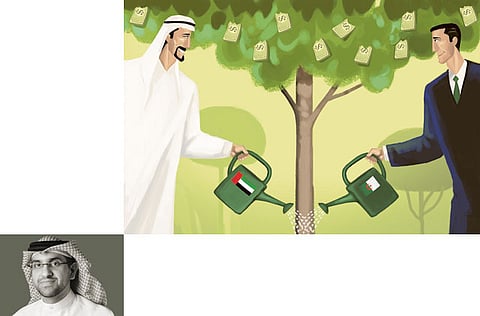UAE’s Algeria outreach means more than just business
Business is just one component of strategic UAE-Algeria ties

The past few weeks have seen a number of senior-level meetings between Algerian and UAE officials. The UAE foreign minister led a high-level delegation to Algiers at the end of last month to build up on the Joint Committee meetings that were held in Abu Dhabi just two weeks earlier. Already Dubai-based DP World is managing two ports in the North African state, including the port of Algiers. In 2009, Abu Dhabi-based Mubadala started operating a $900 million (Dh3.31 billion) power plant in Tipaza with state energy giant Sonatrach. Last year, Ras Al Khaimah-based Julphar Pharmaceuticals laid the foundation stone for a factory in Algiers to serve the Algerian market and North Africa.
The signs have been positive even before the Arab uprisings began with trade between the UAE and Algeria growing at 60 per cent annually from 2005 when it was $16 million to about $173 million in 2010 — partly thanks to the 10,000 Algerians residing in the UAE. Algeria’s gross domestic product, at almost $200 billion is only about half of UAE’s this year. However, it is growing at an impressive rate and has tripled in the decade to 2011. Bilateral trade between the two countries, at $271 million in the first eight months of last year, is negligible and needs to be encouraged to grow. The size of Algeria’s sovereign wealth fund was believed to be $57 billion in 2011 (compared to Abu Dhabi’s $400-$600 billion ADIA fund), while the country’s foreign reserves are believed to be $200 billion — thanks to high oil prices.
But business is just one component of this increasingly strategic relationship. Algeria today is the last major civil Arab state, following the rise of a Shiite Islamist state in Iraq, a Sunni Islamist state in Egypt and the collapse of the state in Syria.
Algeria, despite the existence of half a dozen Islamic political parties is neither a Salafist nor a Brotherhood state. Its 36 million-strong population makes it the second largest Arab state demographically after Egypt and with an area of 2,381,741 square kilometres is the largest Arab country. Algeria also has a well-trained army and the largest military budget in Africa. In fact, Algeria is said to have “the most powerful and best-equipped military in North Africa and the Sahel”.
Algeria’s special forces are also a force to reckon with. Last January, a hostage crisis ensued at the In Amenas gas plant, lasting several days and resulting in around 40 hostages being killed and 800 survivors leading up to the rescue. One of the survivors remarked that the Algerian military ‘did a bloody good job’. Compare this with the hostage crisis of 2004 in the Beslan school in Russia in which 334 out of the 1,120 hostages were killed during the botched rescue operation.
Ever since the UAE’s formation in 1971, Egypt was its closest ally in the Arab world. However, since the rise of the Brotherhood and their regional Political Islam vision, this relationship has seen one setback after another. The messages from the Brotherhood government have sadly not been encouraging with the Brotherhood’s head of foreign affairs committee, Essam Al Erian, referring to the UAE as “the land where the devils reside”.
The UAE will always maintain close ties with the people of Egypt, even today, contributing significantly to the important institution that is Al Azhar. However, Abu Dhabi cannot rely on the current Egyptian government or the ones that are formed in the future, under the influence of the hostile Brotherhood, to be the stable and reliable ally it had been for the first four decades since it was founded. The UAE has started moving into a post-old order Arab world where Iraq, Syria and Egypt are relegated to political back seats due to the actions of their incompetent and/or criminal governments and the country’s rapprochement with Algeria amongst other states is an indication of this political awareness by the UAE.
The UAE, the region’s most dynamic economy, needs to support other civil non-Islamised Arab states with knowledge transfer, enhanced trade and security cooperation. Algeria is a major member of various organisations, including the Arab League and African Union and an important partner in the European Union-Mediterranean Free Trade Area (Algeria already supplies 10 per cent of the European Union (EU) natural gas consumption). The opportunities for enhancing trade and cooperation between the UAE and Algeria are extensive, making both states ideal partners for each other.
Algeria will embark on presidential elections next year, maybe even sooner, and should a relatively young civilian president be elected democratically, relations with the EU and other major trading partners will only improve. Algeria also needs to demonstrate that its civil government, which is also proud of its Muslim roots, is not only held together by the powerful military but civil institutions are the ones that are committed to protecting the North African nation from the risks of encroaching Political Islam.
Sultan Sooud Al Qassemi is a non-resident fellow at the Dubai School of Government. You can follow him at www.twitter.com/SultanAlQassemi
Sign up for the Daily Briefing
Get the latest news and updates straight to your inbox



